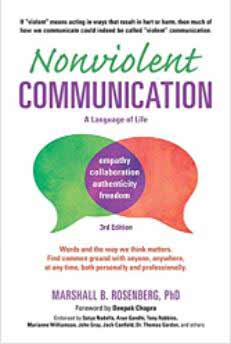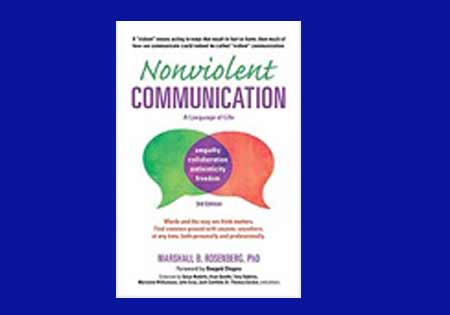
The more we try to do in life and at work, the more we may experience situations where our expectations may not be met. This leads to conflict and emotional interactions. Difficult conversations are an inevitable task in leadership roles, and in life – and it’s helpful knowing how to do it well.
I pride myself on remaining calm through difficult situations and managing conflict, but there have been instances both in my personal and professional life where I’ve either lost my temper or not expressed myself constructively. Looking back, I wish I’d handled them differently.
I also wish I’d read Nonviolent Communication by Marshall B. Rosenberg earlier.
There are many counter-intuitive insights from the author:
Firstly, I learned that contrary to popular opinion (and at the risk of being perceived as weak), it's Ok to express our emotions during a conflict and express our vulnerability as it immediately lowers its intensity internally and externally.
Second, speakers prefer that listeners interrupt rather than pretend to listen.
Third, that intellectual understanding blocks empathy, i.e., usually, our attention is focused on classifying, analysing, and determining levels of wrongness rather than on what we and others need and are not getting.
Instead, non-violent communication (NVC) guides us in reframing how we express ourselves and hear others. The point of NVC isn’t to manipulate others to get our way, but to change our consciousness and establish relationships based on honesty and empathy that will eventually fulfil everyone’s needs.
The typical flow of NV communication is:
1. Observe the situation without evaluating
2. Express how we are feeling about the situation. Distinguish feelings from thoughts.
3. Express our needs or wants from the situation. If we don’t value our needs, others may not either.
4. Take responsibility for your feelings and your needs in the situation. Don’t blame yourself, or others but just sense both our and others’ feelings and needs.
5. Search for the real needs of the other person, no matter how they are expressing themselves.
6. Do not classify, compare, judge, or blame people as it promotes conflict
7. Reflect back messages that are emotionally charged.
8. Clarify the needs of both parties in the situation.
9. Propose strategies for resolving the conflict, framing them in a positive action language. Be clear in what you want. Remember that requests may sound like demands when unaccompanied by the speaker’s feelings and demands.
There are benefits to any leader using NVC: Studies in labour-management negotiations demonstrate that the time required to reach conflict resolution is cut in half when each negotiator agrees, before responding, to accurately repeat what the previous speaker had said.
The author recognises we may experience anger now and then but then makes a bold statement that we are never angry because of what others say or do. Dr Rosenberg recommends that when feeling angry, the first step is to stop and do nothing except breathe. Refrain from making any move to blame or punish the other person. Simply stay quiet. Then identify the thoughts that are making you angry. Distance the other person from any responsibility for our anger.
When you’re at the receiving end of an angry exchange, remember that behind intimidating messages are merely people appealing to us to meet their needs. The difficult message then becomes an opportunity to enrich someone’s life.
Interestingly, the author also says that compliments are often judgments—however positive-of others. The author recommends that an expression of appreciation should specify the actions that have contributed to our well-being or fulfilled our particular needs. The author quickly adds that we must allow ourselves to receive appreciation without feelings of superiority or false humility. So, let me appreciate this book in the language of NVC: I thank Dr Rosenberg for sharing his insights in a vulnerable and clear manner that helped me understand how I can be kind to myself and others, even when we have different views, or when we feel that we have been treated unfairly.
References:
Blog: How leaders manoeuvre conflict
Full disclosure: I don't get paid to post reviews, so you can be assured that this is my candid opinion, and how I see the contents of the book apply to my world.


